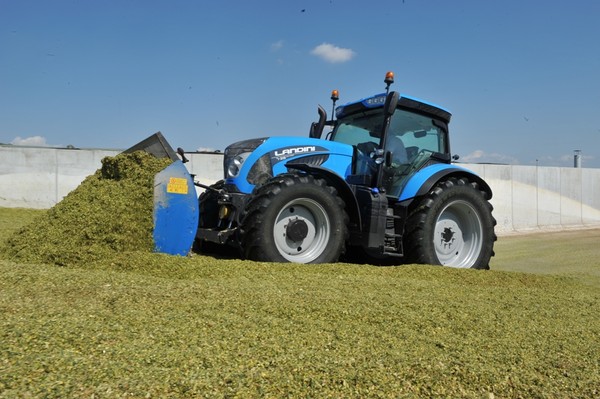
On the lubricants market, a place found for biodegradables of vegetable origin
The ecocompatibility requirements for mechanical operations is making the use of biological lubricants more feasible. Among the new products on the market is Matrol-Bi, produced by the Sincro consortium set up by Novamont and Coldiretti
About 50% of the lubricants sold and used around the world are dispersed in the environment by the application of lubrication loss through evaporation, leakage and accidents. Most of these products are based on mineral oils of fossil origin containing a degree of toxicity and as they are not very biodegradable they carry a very negative fallout for the environment. There is now great interest in the agricultural and forestry sectors in the use of biolubricants of vegetable origin in light of the pressure applied by the European Union on the issue of environmental sustainability and in consideration of the pollution characteristics of the lubricants commonly used. Though vegetable lubricants are not suitable for such uses as motor oil they have turned in excellent results as hydraulic and transmission lubricants by ensuring the same lubrication properties as those derived from petroleum. Good performances have also been found with mixes with gasoline for the two cycle motors powering chainsaws and brush cutters and for the lubrication of chainsaw chains and for partial loss applications such as hydraulic fluids at low to medium operating temperatures. Research conducted by universities and agricultural machinery manufacturers in various countries is thus being focused on the production of new lubricants and hydraulic fluids based on vegetable oils with high degrees of biodegradability and low toxicity. At present there is not yet any precise data on the consumption in Europe biolubricants of vegetable origin but the values usually used in the literature indicate consumption at 100,000 t, a quantity which corresponds to about 2% of the continental market without, however, information on the precise percentage of consumption of lubricants of vegetable origin. Novamont, in cooperation with Coldiretti and in a 50-50 joint venture with Sincro, produced Matrol-Bi®, a new line of biolubricants and greases beginning with sunflower seed and other other oil crops grown by farmers on marginal lands in the Umbria Region. Matrol-Bi® has given an excellent performance as hydraulic and transmission lubricants at the same level as those derived from petroleum. There are three types of products in the line: biodegradable lubricant for tractor transmissions; UTTO (Universal Tractor Transmission Oil), a biodegradable lubricant used for gearboxes, differentials, final power reducer gears, brakes and oil-bath clutches and other auxiliary systems for agriculture tractors and earthmoving equipment; biodegradable hydraulic lubricants. These are anti-wear, antioxidant, anti-rust and anti-foam lubricants available in three types according to viscosity: ISO VG 32 (fluid), ISO VG 46 (medium) e ISO VG 68 (viscous); lithium vegetable grease. A biodegradable semifluid grease useful for the general lubrication of mechanical parts which is water repellent, anti-corrosion and resistant to thermal and mechanical stress.
In 2013 Sincro began the industrial production of biolubricants which will be marketed through the Agrarian Consortium network. In the meantime, a protocol of understanding has been signed by ANCI, the National Association of Italian Municipalities, and GAIL, the Lubrication Industry Company Group in Federchimica-Aispec, to foster the use of regenerated and biodegradable lubricant oils by the municipalities and disseminate information on their lower impact on the environment.








